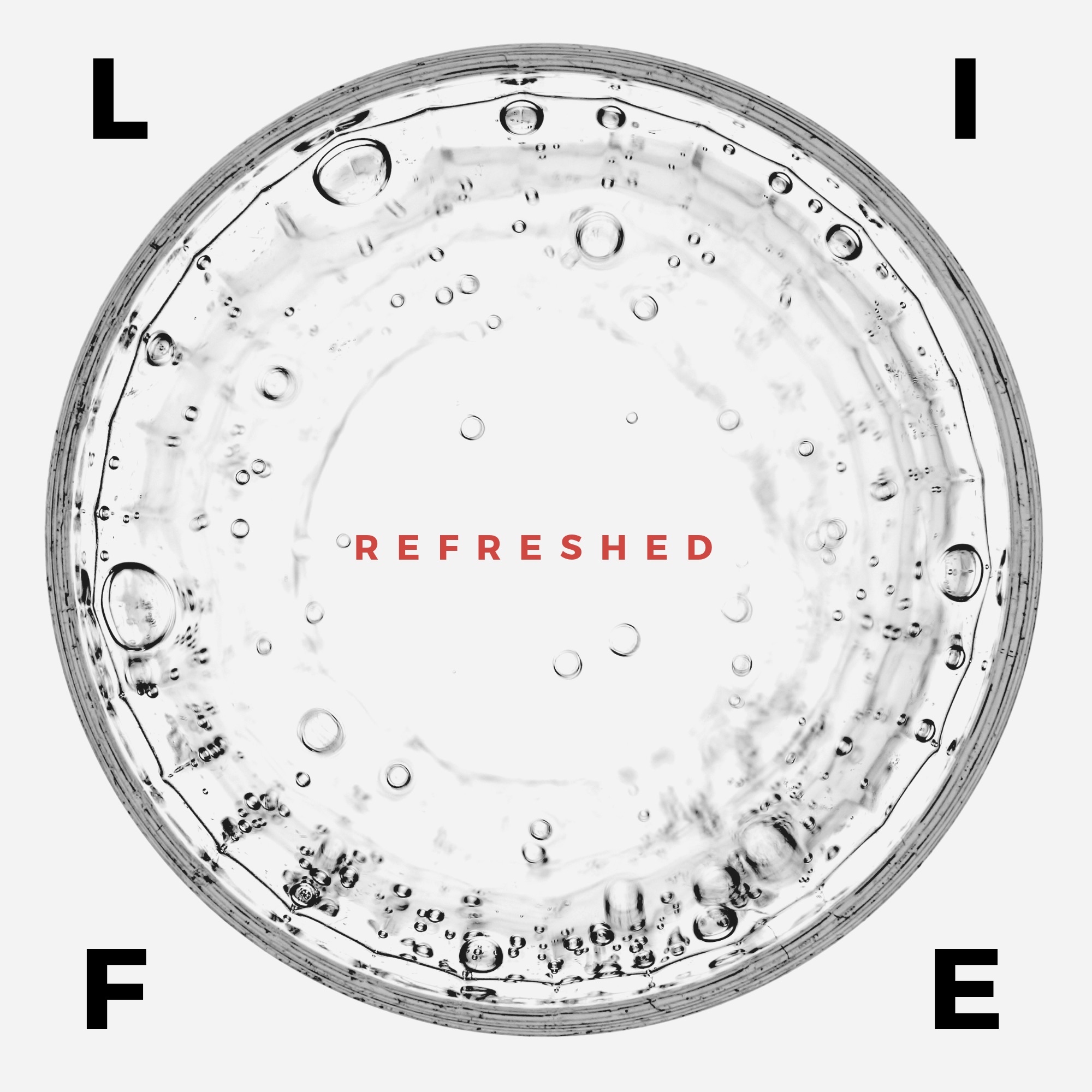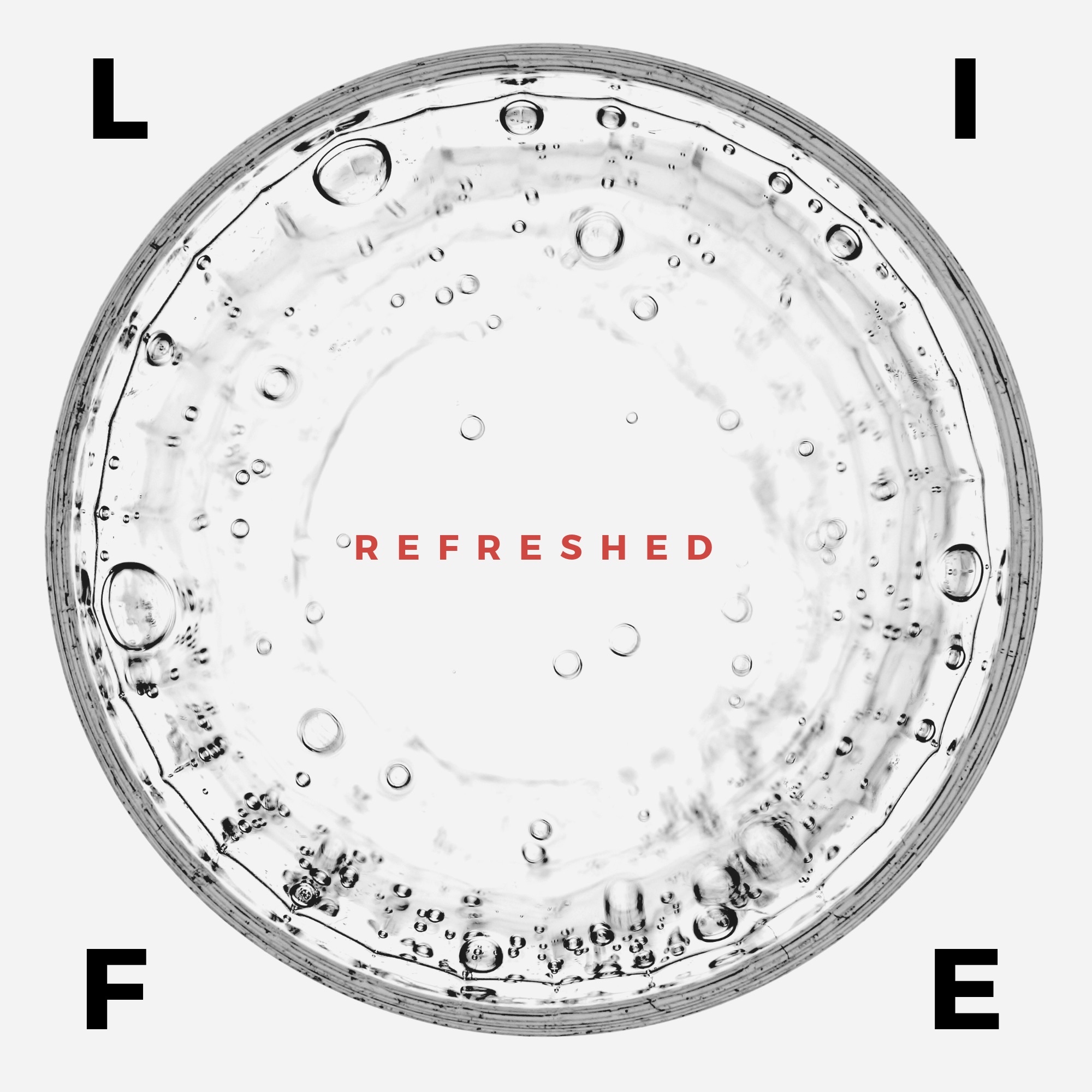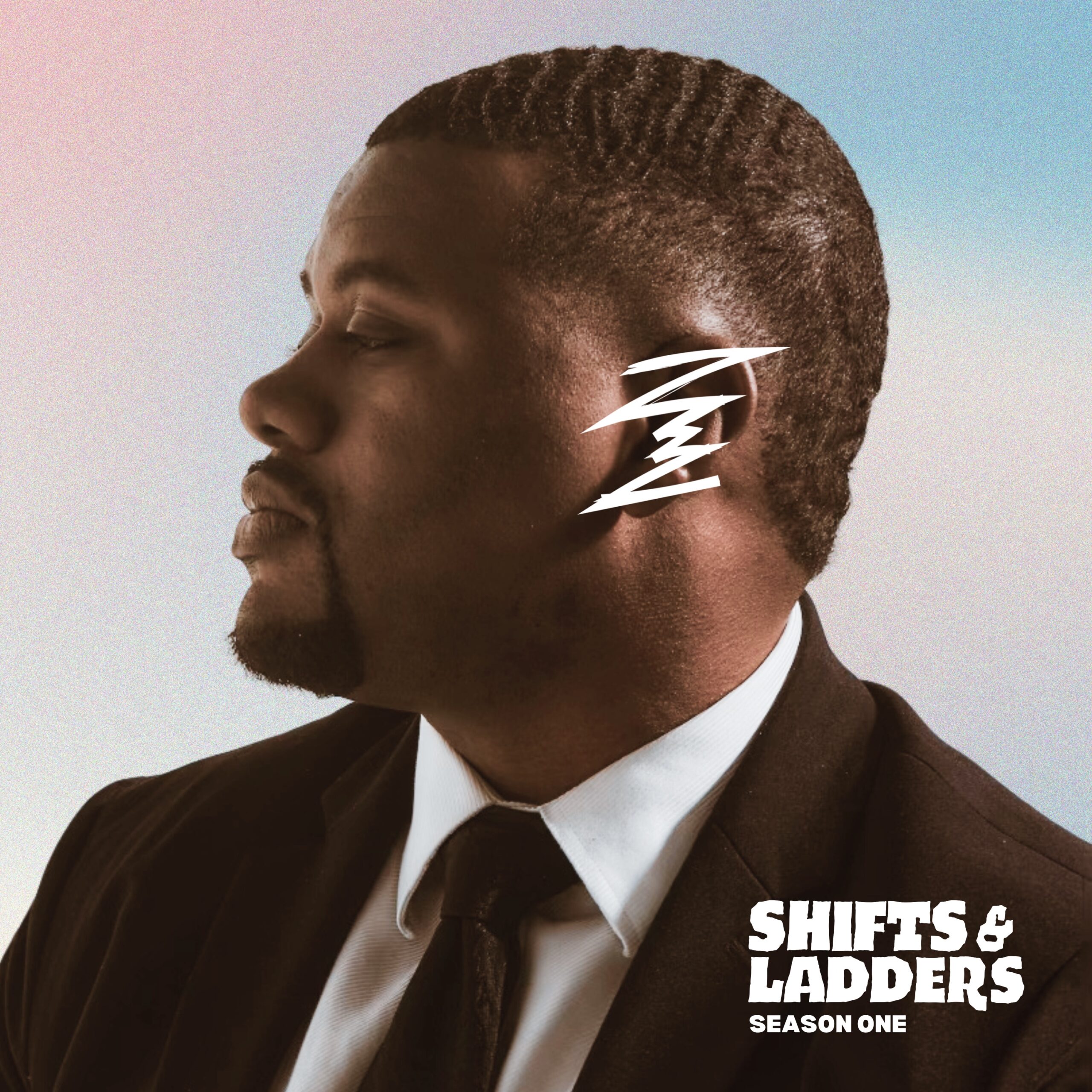Episode Transcript
Speaker 0 00:00:00 Welcome to the Life Refresh podcast. My name is Ryan Robinson, and if you are looking for a podcast that is designed to uplift, encourage and revive your heart, mind, and spirit. You're in the right place. Welcome to the journey of Becoming the version of You God designed from the foundations of the earth. Now, let's begin.
Speaker 0 00:00:32 Hello and welcome back to Life Refresh Podcast. You know who it is. This is Ryan Robinson again, I just want to thank you, uh, for just tuning in today. And thank you for all the listeners who have continued to listen to this podcast. It's been reaching many people, and again, I cannot thank you enough for sharing podcasts with someone. And again, before you share, I hope that it gives you some value as well as we've, uh, continued to go on this journey. Our last podcast, I'm just gonna jump right into content. We talked about the difference between sympathy and empathy, and unfortunately, many of us have this, um, challenge with both. Um, empathy requires, as we talked about a whole different level of investment from people. It requires people to be engaged. It requires individuals to have time, uh, u uh, time utilized to understand where people are, to properly and intimately get engaged with someone's journey.
Speaker 0 00:01:35 And that, to me is a very difficult thing for many people to understand in the sense that it, it, it causes individual. There's a cost involved because there's some things that you may learn from someone, some things that you may get invested in some challenges, there's disappointment. There's all kinds of things that happen in the process of connecting with empathy with someone. But there's also big roadblocks that do keep us from creating real empathy. Now, this is the thing. What I find is that the definitions that people have around empathy actually inform the way people connect with one another. So if your experience of empathy is feeling sad or feeling bad about your circumstances and trying to find ways to make them feel better, not to say that your definition is wrong, it is the fact that the way you experienced it in the past is the way that you understand it to be.
Speaker 0 00:02:36 And most of the time, what makes it difficult for us to redefine what empathy is, is the topic that we are going to discuss today. And it is ego. Many people of us have ego <laugh>, and, uh, it, it shows up in ways that we're not able to conform to, or maybe even in many cases understand why we have it in the first place. So I'm gonna give you a definition of what ego is for the first part here of this. And then we'll get around, uh, the topic around the death of ego because this, or the shattering of eco, depending on what you wanna call it. But the thing is, you cannot empathize with anyone if you do not destroy, dismantle your ego. Because sometimes what we feel is that we have a superman or superhero complex that gives us the ability to save someone in their situation, their muck and their mess.
Speaker 0 00:03:39 And we find out because we think we are doing what is best for them, whoever them is, <laugh>, uh, we mitigate the real challenge and issue because we think we know what's best for someone else. Now, if, if you're dealing with a child that's different, but even then sometimes your kids need something different than what we can provide because we think we know what's best. And maybe that's not what God wants for that individual or for that kid or for that friend or for that parent, for that spouse, that partner. You just don't know what someone needs unless you kill your ego. So let me get to the definition here. Ego is, uh, is a noun, <laugh>, it's the person's, a person's sense of self-esteem or self importance. The part of the mind that meditates between the conscious and the unconscious and is responsible for re uh, for reality testing and a sense of personal identity.
Speaker 0 00:04:43 Okay? So what it does is it gives us the ability to one, understanding, hey, I'm important. That gives someone some agency, uh, amongst many people, which is a good thing. It's not a bad thing, but there are some negative effects to it when it comes to empathy, because the fact is, your experience is different than mine. I'm a man, I'm a black male in America, in his mid thirties. You, some people can't necessarily connect cuz you might be a woman, you might be of a different ethnicity, you are gender or whatever it is, race different. But the thing is, if I don't have the ego, if I have the ego to think, you know what? I know exactly what you need and this is what it's gonna be without having any kind of cultural context, any ability to learn, any ability to understand, I am essentially putting my perspective, my preference onto you, and thinking that because it worked for me, it'll work for you.
Speaker 0 00:05:47 And that's not caring, that's not empathy, that's ego speaking for itself. So one of the challenges that we have with this is how do we actually deal with ego? How do we determined and where do we get the examples of how we can dismantle it? And again, as with anything, we're gonna go to the Bible <laugh> to understand some of the challenges and one of the many opportunities that we have to create dismantle ego in a way that is healthy, but also honoring to not just you, but also to the other individual. So let, let's go ahead and we'll get started on the first topic. Maybe we'll get to the second one. We'll probably pause as we go into the second one. But, um, the first one, and, and again, the Bible is filled with examples as to why ego should be dismantled. The Bible says on Proverbs, and, and I'll have it listed in the show notes, but, uh, Bible says, pride comes before destruction, a hardy spirit before a fall.
Speaker 0 00:07:03 Okay? If you have yourself puffed up and thinking that you understand what's going on, not just in the world, but with individuals and people around you, it makes it very difficult for God to do something in you or in fact do something through you. It it's very, very challenging. There's also another piece here in the book of Proverbs, again, in order for anyone to understand, I'm, I'm gonna go. It's Proverbs chapter one. Chapter one. We're gonna start at, uh, verse I'm start at the beginning. It's only eight verses Proverbs of Solomon, the son of David, king of Israel, to no wisdom. Now this is the, this chapter starts out Why and the purpose, the why, the purpose and theme of Proverbs by the most wise person that has ever lived, king Solomon. Okay? So let me read the proverbs of Solomon, the son of David, king of Israel, to no wisdom and instruction to perceive the words of understanding, to receive the instruction of wisdom, justice, judgment, and equity to give subtlety to the simple, to the young man, knowledge and discretion.
Speaker 0 00:08:15 A wise man will hear and will increase learning. And a man of understanding will attain wise counsel to understand a proverb and the interpretation, the words of the wises and their riddles. Here it is, the fear of the Lord is the beginning of knowledge, but fools despise wisdom and instruction. Okay? So the thing is, a fool is someone who thinks that they are bigger and better <laugh> than the circumstances. So if you've had someone around your life that just doesn't want to learn anything, say, oh, I know, or typically the response is, oh yeah, I know, I know. Well, if you knew, you wouldn't have done it. But if you know, then you are automatically just undercutting, undercutting the opportunity for you to learn and grow and develop. Okay? So with all that being said, those two particular scriptures, we are introducing the topic of humility.
Speaker 0 00:09:17 Humility is a, is a major concept in the Bible. Okay? Um, so much so that, uh, the Lord despises the proud, um, yeah, believe it or not, God despises the proud. Um, it is a, you can't really tell anybody. As I said, you, you can't really do anything apart from God. It, it is really powerful because we already talked about proverb, but let me pull another one in here cuz this one definitely brings in. Here's another one in Proverbs, the Lord will tear down the house of the proud, but he will establish the boundary of the widow. Yep, <laugh>. And it is God doesn't like proud people James four, six. But he gives a greater grace. Therefore it says God is opposed to the proud, but gives grace to the humble. Another scripture says, humble yourself under the mighty hand of God for induced season.
Speaker 0 00:10:23 He will exalt you if you think you know everything. It, like I said, it makes it really hard to connect with anyone. Um, there's plenty of examples by which God has had to humble. You've might have been humbled in your life. I can tell you I have definitely been humbled in my life. I thought I was the catch me out. I thought I was this, that, and a bag of chips. Everyone in life has had a humbling moment in their lives. But the problem is we get humble in one area and then build ego in another area. It's kind of like Play-doh, <laugh>. Um, and, and in many cases, uh, the Bible mentions, uh, this kind of spiritual challenge of humility as yeast being puffed up in the Pharisees. So it is something that pops up. If it's pressed down, it may pop up in other areas of your life.
Speaker 0 00:11:20 You may be humble at work, but you not be humble at home. Come on somebody. You might be humble at home, but you're not humble in your friendships. You wanna be Dr. Phil and Oprah to everyone and you have the answer, but no one really understands that you don't know what you know, you're just reg regurgitating what you heard, uh, someone go through. Um, I'm just gonna pause there cuz I think we have very many, maybe too many counselors who have not gone through anything, um, or observed anything in people's lives. I'm not saying counselors in the sense of being a profession, but in the sense that individuals have, uh, shared, uh, their challenges and have only watched, heard and learned from other people, but don't have the credibility that empathy requires cuz there's a cost to it, right? You have to have gone through it in order to speak to me about it.
Speaker 0 00:12:22 If you don't know what it's like to be down to a few dollars in your bank account, or if you have been in a challenging season in your marriage in at some point in your life, you really cannot connect with me. You can only sympathize with me, but you cannot empathize with me. And that is because your ego is in the way you want to feel important, you want to have those things. And again, you cannot empathize with anyone unless you truly kill and destroy your ego. So one of the biggest opportunities, and again I'm gonna bring this one in, is around humility is the story of John the Baptist. And this story is general is found in John chapter one verses 1919 through 34. And this is one example of John, and again, I'm not gonna read it, that's, we'll keep it in the show notes in this show, but I feel like humility has a huge requirement of individuals to be able to point to someone else besides them.
Speaker 0 00:13:32 So John the Baptist was an individual whose voice cried out in the wilderness, and his role was to make straight the way of the Lord. Uh, just as the prophet Isaiah said, and I'm just speaking from, uh, the scripture of, of verse 23. Um, so the thing is John's responsibility was to lead the way and to point people to Christ. And he would say, repent, repent for the kingdom of God is at hand. Repent, repent meaning to turn direction, to turn around, to go back from the way you are going and go a different direction, okay? Not to feel bad, which most people think repent means. And we put a negative connotation to that word culturally. But what it really means in this definition is to turn around, change your direction. God's coming, the kingdom of God is at hand. Um, and John's role was to point people to Christ.
Speaker 0 00:14:31 And when Christ showed up, he as the first person who's speaking about the kingdom of God, is responsible for baptizing the very individual who is going to deliver the entire world of their sins. He says, behold the lamb of God whom takes away the sins of the world. That's one of the, the scriptures when Jesus comes, uh, to be baptized by John the Baptist. Now, this is the thing, there's a couple things that ego can do or humility requires us and re humility requires us to pass glory or honor to someone else. Particularly it requires a piece of integrity out of you to be able to say, you know what? I'm not that guy, but the other person over here, they're the one that made it happen. Okay? We work together, but they they really are the ones who, who did it. Now let me bring this up to you and, and give you the example from John chapter one starting at verse 19.
Speaker 0 00:15:35 So now this is the testimony of John when the Jews sent priests and the Levis from Jerusalem to ask him, here you go, who are you? He confessed and did not deny, I am not the Christ. Then they asked him, then Who are you, Elijah? He said, I am not, are you the prophet? He answered, Nope. Then they said to him, who are you? Tell us. So we may give an answer to those who sent us. What do you say concerning yourself? John said, here it is. And I said it earlier, I am the voice of one crying out in the wilderness. Make straight the way of the Lord, just as the prophet Isaiah said. Now those who are sent for the Pharisees, they asked him, why do you baptize then if you are not the Christ nor Elijah, nor the prophet? John answered them, I baptized with water, but one stands among you whom you do not know.
Speaker 0 00:16:30 This is he who comes after me, who is preferred before me. The strap of those whose sandal I am not worthy to untie. These things took place in Bethany beyond the Jordan where John was baptizing. I'm just gonna pause there. It is so important. These are the examples by which we really need to operate in humility. It is so important for us to have integrity and honestly for us to be comfortable with who we are in our own skin. These folks put John in categories that he's like, look, y'all, I'm not even <laugh> close to tie in the sandals of the man who's coming after me, but you mentioned prophets and, and Elijah, he said, I'm not, I'm not in any one of those either. He said what he was and he rocked what he was. He did his job, he did his role. And you know what?
Speaker 0 00:17:31 It takes humility to operate in the ways that you've been design and created without yearning for someone else's accolades and opportunity, particularly when you have the opportunity to do so. We're dealing with issues of of character. When we're talking about humility. Are you gonna take credit for something that you didn't do? Are you gonna bring something up? Are you going to take responsibility for something that goes bad? Or are you gonna take responsibility for something that goes well when you do it? But if you didn't do it, are you gonna point and honor the f the folks and individuals that did do it? That ladies and gentlemen, is humility. That's humility. That's the cost of it. There is an opportunity that could be taken, but because you don't do it, that means you have humility and you have honor. Even though you can, you don't come on somebody even though you could and you would, you won't.
Speaker 0 00:18:30 That to me, ladies and gentlemen, is one of the important keys to killing your ego is humility. You know what? All in all Christianity, in its, in its, uh, entirety is actually a, um, <laugh>, a, a, a spirituality that kills the ego because there's no work that you can do. It's actually centered around this idea. Then no matter how much good you do, you could, uh, you could be perfect, you could, which is impossible. Uh, you could not make a mistake. There's things like I spoke to early in a few podcasts around the 10 Commandments. It's designed to let you know that you cannot do this by yourself. You cannot be perfect and therefore you are in need of a savior. And, um, Ephesians two chapter a, uh, excuse me, chapter two verse eight and nine says this, uh, for it is by grace that you have been saved through faith.
Speaker 0 00:19:30 Here it is. This is not from yourselves or another translation says, this is not of works. It is a gift of God, not of works so that no one can boast. For we are God's handwork created in Christ Jesus to do good works, which God prepared in advance for us to do this, y'all is a gift of God for relationship. If you thought that your goodness, your perfection, your ability to do everything well, not make a mistake, is you unconsciously and inadvertently sane that you are more perfect than Jesus and God therefore you don't need one. I'm gonna let that marinate, okay? If you think you can do this all by yourself, good luck. There are people that have gone mentally crazy trying to do the right thing. And I've done the, I've done everything I could and it's not working out well. You know what?
Speaker 0 00:20:37 You can't control your own life. You can do the best you can, but you can't heal yourself. You can't keep your own heart beating. At what point will we be humble enough to understand and say, you know, I don't know everything I need help. This, ladies and gentlemen, is the first step to destroying your ego. Ladies and gentlemen, we'll have another podcast here. I knew I wasn't gonna get to the second piece, which might be a three parter, but, uh, we'll get to the next one here. I I really hope you dig into this because the components to empathy require the dismantling of others. So, uh, keep it locked here and we'll see you in the next one.






